The Shining 101 – The Creation of an Opera
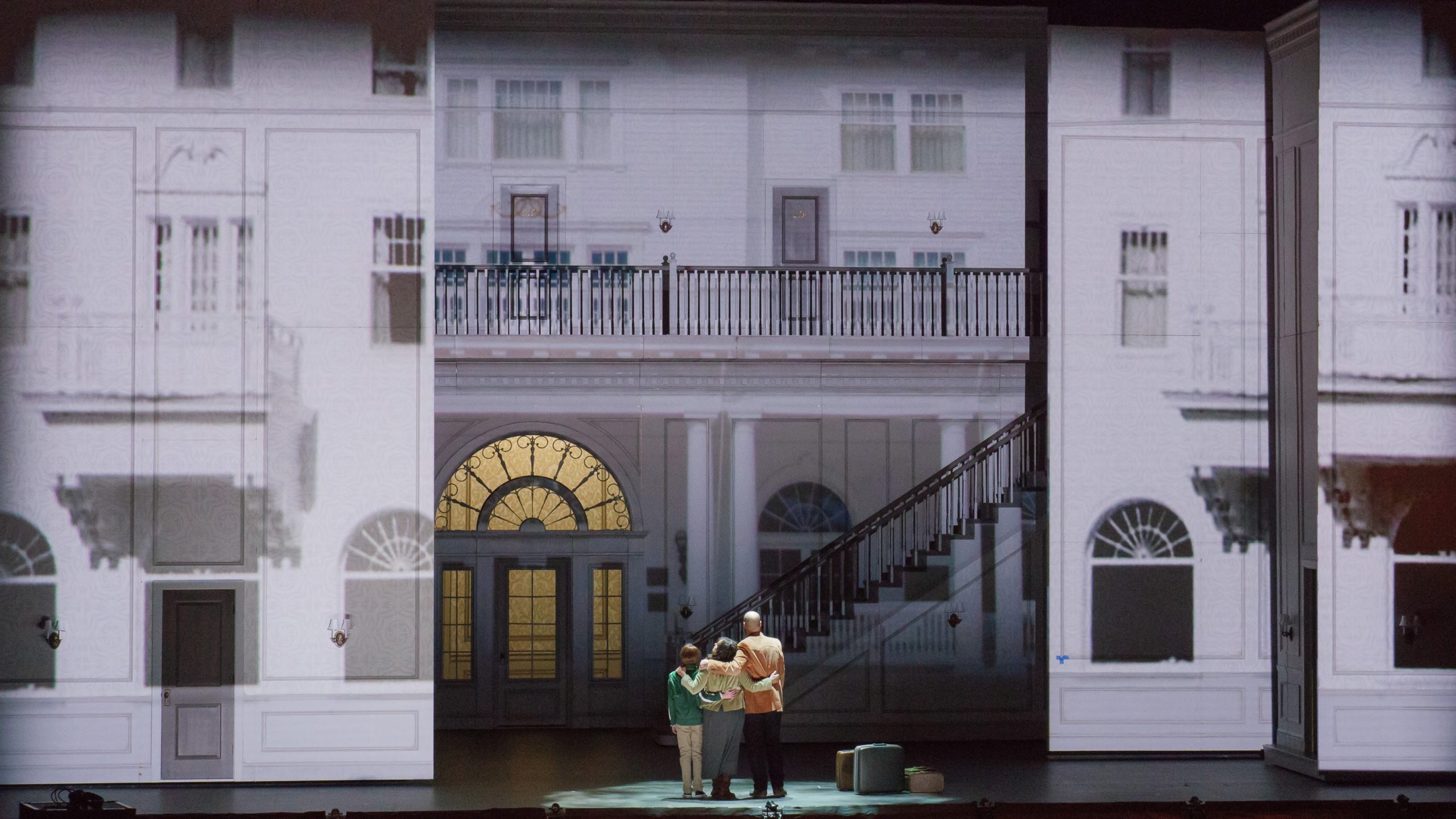
By: Betsy Schwarm
Put the iconic image of a leering, sneering Jack Nicholson out of your mind. Set aside those oft-quoted lines: “Here’s Johnny” and “All work and no play make Jack a dull boy.” That’s the film by Stanley Kubrick; this is the opera. Of the two, author Stephen King prefers the opera, and as the author of the 1977 novel on which the opera and film are based, surely he is permitted an opinion as to what best reflects his original vision.
Interested in learning more about the plot and characters of Moravec and Campbell’s operatic adaptation of The Shining? Check out the first installment of The Shining 101>>
THE SHINING BECOMES AN OPERA
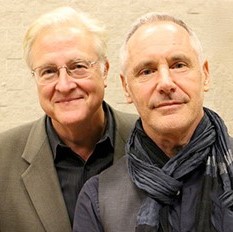
The Shining came to operatic life at the suggestion of stage director Eric Simonson and Minnesota Opera. A crucial early step was winning King’s consent to even begin. One of the most important terms was promising King final approval of the libretto. Composer Paul Moravec and librettist Mark Campbell agreed to partner on the project, especially given the possibility of working from the book, not the film. As Moravec observes, “in the book, the characters are more sympathetic, even Jack, who comes to realize what’s happening to him.” That depth of personality, a characteristic of fine writing, is also crucial in opera. Moravec and Campbell were determined to bring out the nuanced personalities found in the novel, leading to a more satisfactory experience for creators, performers, and audiences alike.
HONORING STEPHEN KING’S CHARACTERS
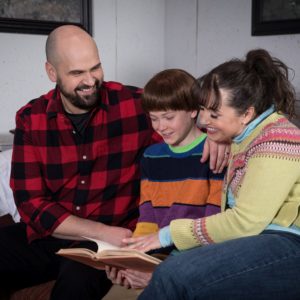
In the story, Moravec perceives what he describes as “resonant archetypes.” To a certain extent, The Shining is a Jekyll-and-Hyde story, though Moravec also saw a biblical connection to Abraham and Isaac: will the father sacrifice his beloved son? The inner conflict of these archetypes guided the opera’s early development. Through the process, Moravec developed Jack’s music, earning a strongly-dramatic, soul-searching aria, as well as often-fragmented vocal lines. The fragmentation seems representative of Jack becoming, in Moravec’s words, “overwhelmed by madness and evil.”
“Hallorann becomes the hero [and] Wendy is NOT just a screamer. They’re three-dimensional people in the novel, and the opera, too. It’s an ordinary family trying to survive under extraordinary circumstances.”
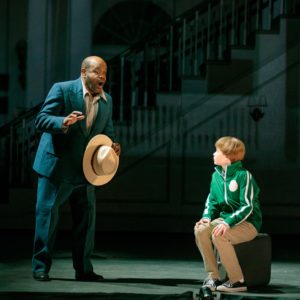
Of the other adult humans in the story (setting aside ghosts, as well as avoiding spoilers), Moravec declares, “Hallorann becomes the hero [and] Wendy is NOT just a screamer. They’re three-dimensional people in the novel, and the opera, too. It’s an ordinary family trying to survive under extraordinary circumstances.” Circumstances that likely none of us have experienced, but one might still muse upon how one would cope. Orchestral interludes allow an opportunity for musing, as well as showing the passage of time, allowing for set changes, and providing space for the music—and the characters—to grow.
THE SHINING ON STAGE
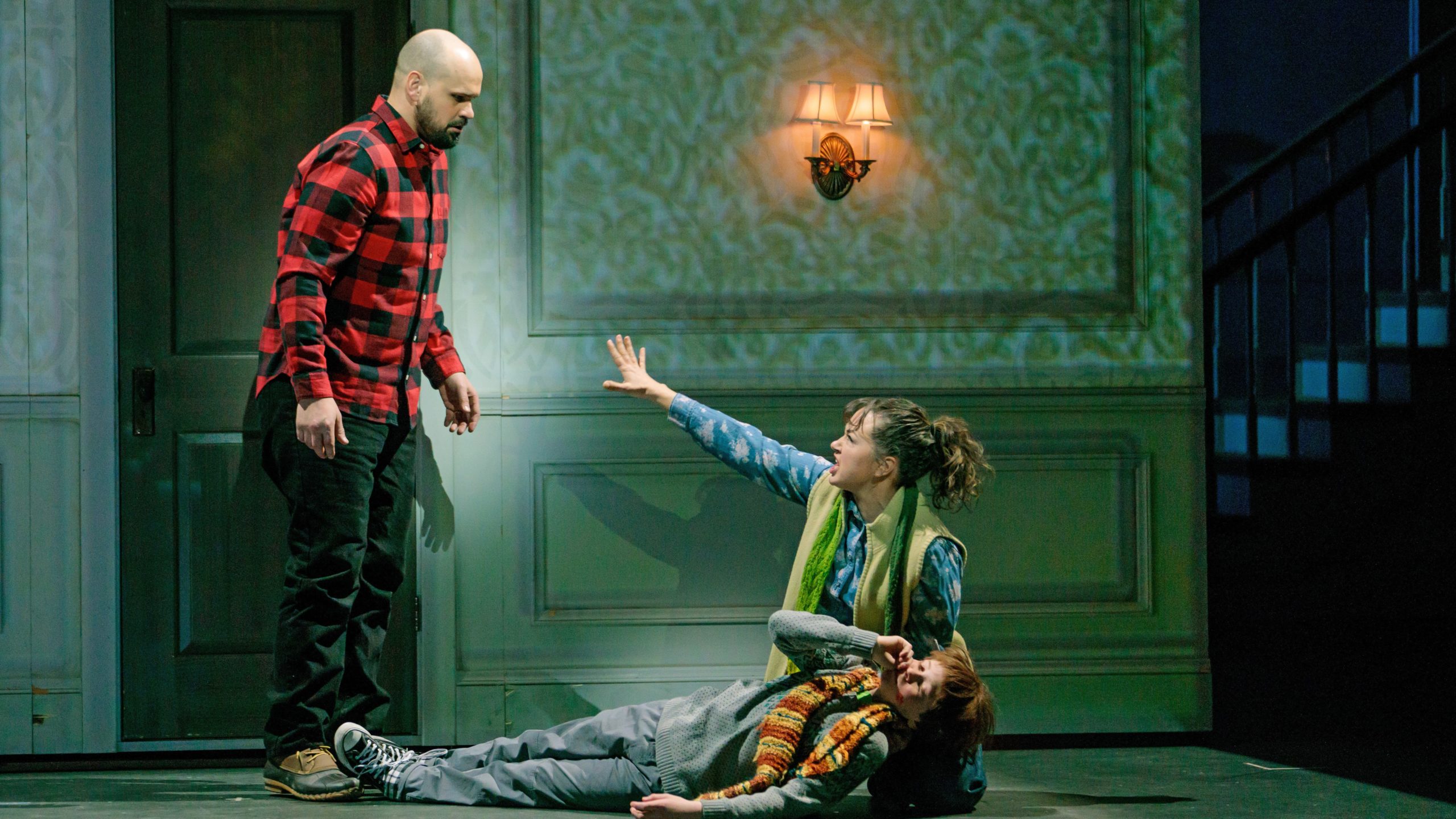
Before a note of music was written, Campbell’s libretto was completed and approved by King. Campbell says he “began by identifying stage-worthy events in the novel that were necessary to propel and build – and not impede – the narrative.” The time structure became tighter, and the words and phrases were designed to lend themselves to expression through singing rather than the spoken voice. Along the way, Campbell made changes to best suit musical purposes. Campbell recalls that Hallorann’s final aria was ever-evolving: “One morning, I woke up and sent Paul three different versions of the same aria—we both liked one, and it clicked.”
It also ‘clicked’ for the premiere audience May 7, 2016, at Minnesota Opera. Is it Kubrick’s film in operatic form? Decidedly not, nor would King have been pleased if it were. As Campbell remarks, “Opera is a whole different beast, and Paul’s music gives this beast a perfect way to convey the story.” Moravec expands on that thought: “Why bother with an opera? To use music to drive and underscore the telling of a story.” Whatever your previous experience with King’s tale, as an opera, The Shining takes on greater richness than you could ever imagine.
© Betsy Schwarm, author of the Classical Music Insights series
Now that you are an expert on The Shining, you should experience the production live and in person! Tickets to Opera Colorado’s production The Shining are available now for February and March of 2022. Buy Tickets>>
–
Are you looking forward to this new production of The Shining? Have you read the book or watched one of the movie adaptations? What else do you want to learn about the opera? Let us know in the comments below!


